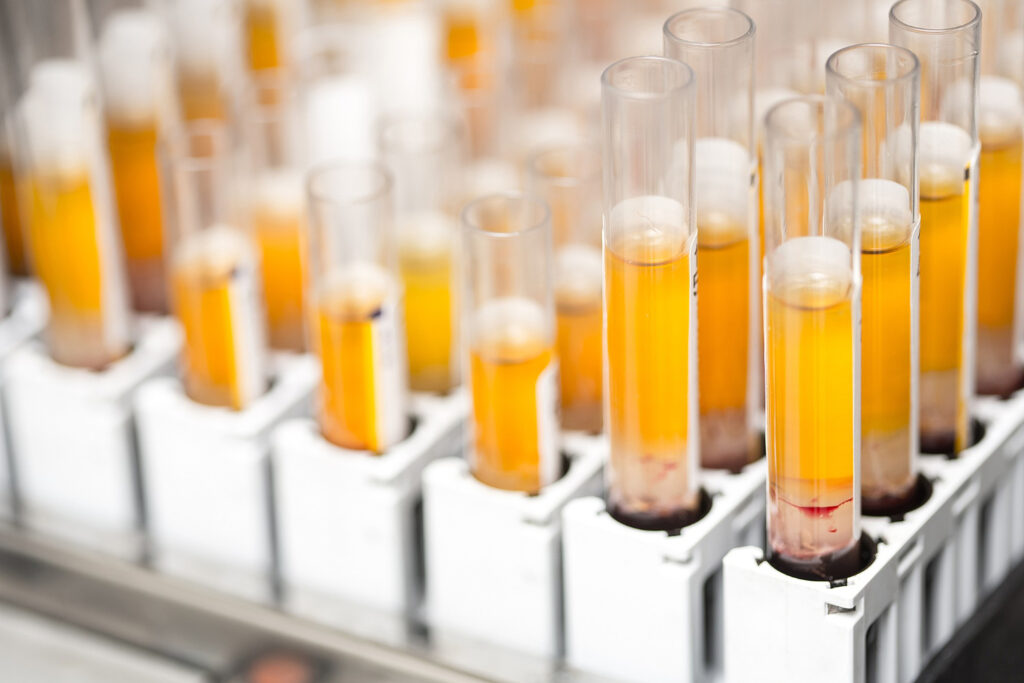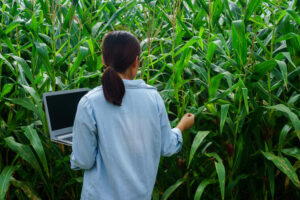New biotechnological yeasts for ethanol production in Argentina: a boost for the bioethanol industry

Tubos con muestras de sangre que muestran la separación entre el plasma y los glóbulos rojos, listos para su análisis en laboratorio.
In a recent breakthrough for the agri-food industry, the government of Argentina has authorized two new biotechnological yeasts designed to enhance the country’s bioethanol production. These genetically modified yeasts aim to optimize fermentation efficiency and convert a greater volume of grain into ethanol, resulting in a significant production increase. This development is part of a broader effort to maximize the use of agricultural resources through advanced and sustainable technologies.
With the introduction of Saccharomyces cerevisiae strains GICC03671 and GICC03636, Argentine companies are now able to boost ethanol output by an estimated 21 to 24 million additional liters—without increasing the volume of grain used. This innovation not only improves the efficiency of bioethanol production but also translates into an estimated 15 million dollars in additional annual revenue for the sector.
Biotechnology: a key strategy for efficiency and sustainability
Applying biotechnology to ethanol production is a key strategy for improving industry yield. These genetically modified yeasts enhance fermentation, allowing more ethanol to be produced without increasing the quantity of raw materials like grain. The result is greater profitability for companies and more efficient resource management—both of which support the long-term sustainability of the agri-food sector.
In addition to increased ethanol output, the fermentation by-product known as distiller’s grain (burlanda in Spanish) will be repurposed as livestock feed. This contributes to a circular economy by making full use of production resources. What was once a waste product or of limited use now gains new value, further amplifying the positive impact of this biotechnological innovation.
Authorization and risk assessment process
The approval of these biotechnological yeasts followed a rigorous evaluation by the National Advisory Commission on Agricultural Biotechnology (CONABIA), in cooperation with the Secretariat of Agriculture, Livestock and Fisheries. Throughout the evaluation, the environmental impact of the yeasts was thoroughly assessed, and it was concluded that they pose no additional risk to agroecosystems.
The risk assessment process included an in-depth analysis of the potential effects on biodiversity and local ecosystems. Argentina’s National Service of Agri-Food Health and Quality (SENASA) also played a critical role in ensuring the safety of these microorganisms for animal feed, certifying their suitability for livestock nutrition.
Regulatory authorities emphasized that safety and sustainability are top priorities in the approval of new biotechnological developments. Therefore, the authorization of these yeasts was based not only on scientific principles but also on international standards ensuring that the resulting products do not negatively impact the environment or public health.
Enhancing Argentina’s global competitiveness in bioethanol
The use of biotechnological yeasts in ethanol production significantly enhances Argentina’s competitiveness in the global bioethanol market. With greater production capacity, Argentine companies are better positioned to meet the growing demand for ethanol, which is used both as a biofuel in the energy sector and as a raw material in pharmaceutical and cosmetic industries.
Bioethanol plays a crucial role in reducing greenhouse gas emissions, as it is a renewable energy source that contributes to the decarbonization of sectors like transportation. With increased production and optimized resource use made possible by the new yeasts, Argentina strengthens its commitment to sustainable development and innovation within the agro-industrial sector.
The use of these new genetically modified yeasts also paves the way for future research and cross-sector applications, potentially transforming the country’s biotechnology industry and establishing Argentina as a global leader in bioethanol production.
A milestone for sustainable bioethanol production
The authorization of these new biotechnological yeasts marks a key milestone in Argentina’s efforts to sustainably manage agri-food resources. By increasing production without raising grain input, this innovation improves process efficiency while contributing to the country’s economic growth.
Furthermore, the optimized use of resources and the valorization of by-products like distiller’s grain signal a shift toward a more sustainable and circular model in Argentina’s agri-food industry. These types of biotechnological innovations will strengthen Argentina’s position in the global bioethanol market and help solidify its leadership in renewable energy production.








